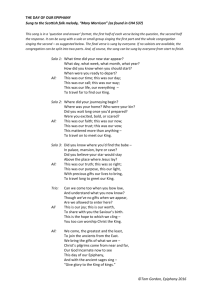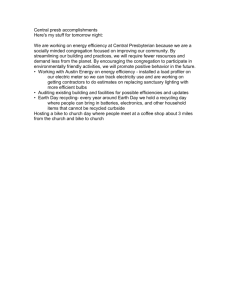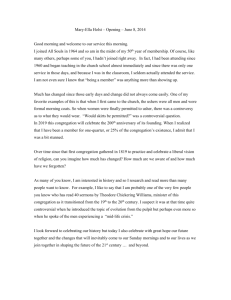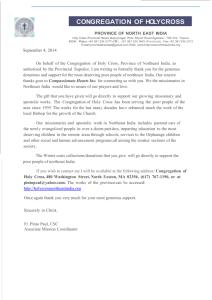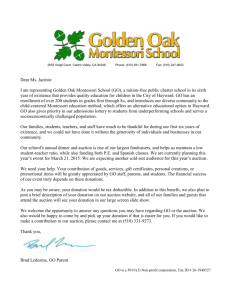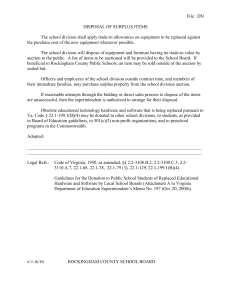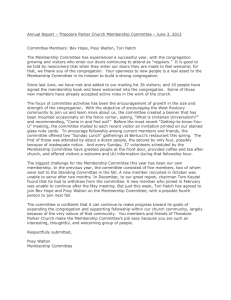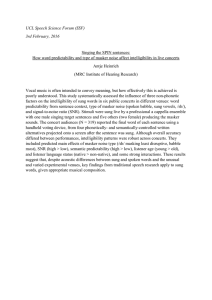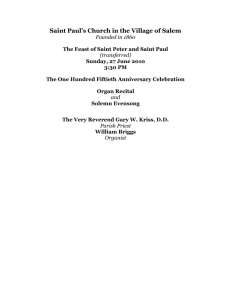word document
advertisement
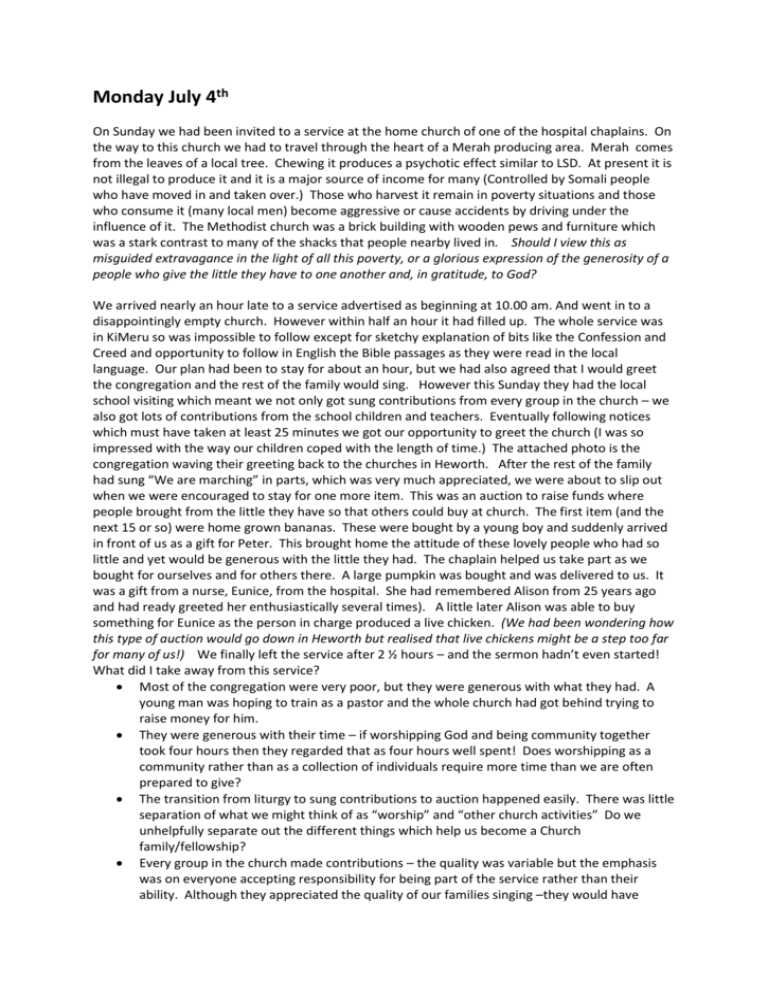
Monday July 4th On Sunday we had been invited to a service at the home church of one of the hospital chaplains. On the way to this church we had to travel through the heart of a Merah producing area. Merah comes from the leaves of a local tree. Chewing it produces a psychotic effect similar to LSD. At present it is not illegal to produce it and it is a major source of income for many (Controlled by Somali people who have moved in and taken over.) Those who harvest it remain in poverty situations and those who consume it (many local men) become aggressive or cause accidents by driving under the influence of it. The Methodist church was a brick building with wooden pews and furniture which was a stark contrast to many of the shacks that people nearby lived in. Should I view this as misguided extravagance in the light of all this poverty, or a glorious expression of the generosity of a people who give the little they have to one another and, in gratitude, to God? We arrived nearly an hour late to a service advertised as beginning at 10.00 am. And went in to a disappointingly empty church. However within half an hour it had filled up. The whole service was in KiMeru so was impossible to follow except for sketchy explanation of bits like the Confession and Creed and opportunity to follow in English the Bible passages as they were read in the local language. Our plan had been to stay for about an hour, but we had also agreed that I would greet the congregation and the rest of the family would sing. However this Sunday they had the local school visiting which meant we not only got sung contributions from every group in the church – we also got lots of contributions from the school children and teachers. Eventually following notices which must have taken at least 25 minutes we got our opportunity to greet the church (I was so impressed with the way our children coped with the length of time.) The attached photo is the congregation waving their greeting back to the churches in Heworth. After the rest of the family had sung “We are marching” in parts, which was very much appreciated, we were about to slip out when we were encouraged to stay for one more item. This was an auction to raise funds where people brought from the little they have so that others could buy at church. The first item (and the next 15 or so) were home grown bananas. These were bought by a young boy and suddenly arrived in front of us as a gift for Peter. This brought home the attitude of these lovely people who had so little and yet would be generous with the little they had. The chaplain helped us take part as we bought for ourselves and for others there. A large pumpkin was bought and was delivered to us. It was a gift from a nurse, Eunice, from the hospital. She had remembered Alison from 25 years ago and had ready greeted her enthusiastically several times). A little later Alison was able to buy something for Eunice as the person in charge produced a live chicken. (We had been wondering how this type of auction would go down in Heworth but realised that live chickens might be a step too far for many of us!) We finally left the service after 2 ½ hours – and the sermon hadn’t even started! What did I take away from this service? Most of the congregation were very poor, but they were generous with what they had. A young man was hoping to train as a pastor and the whole church had got behind trying to raise money for him. They were generous with their time – if worshipping God and being community together took four hours then they regarded that as four hours well spent! Does worshipping as a community rather than as a collection of individuals require more time than we are often prepared to give? The transition from liturgy to sung contributions to auction happened easily. There was little separation of what we might think of as “worship” and “other church activities” Do we unhelpfully separate out the different things which help us become a Church family/fellowship? Every group in the church made contributions – the quality was variable but the emphasis was on everyone accepting responsibility for being part of the service rather than their ability. Although they appreciated the quality of our families singing –they would have expected them to do so even if they couldn’t sing well. This is a contrast with the emphasis we so often have where people feel they cannot so something until they can do it well. This means our emphasis is on performance rather than fulfilling our obligation to contribute to worship and to appreciate others for their efforts.
